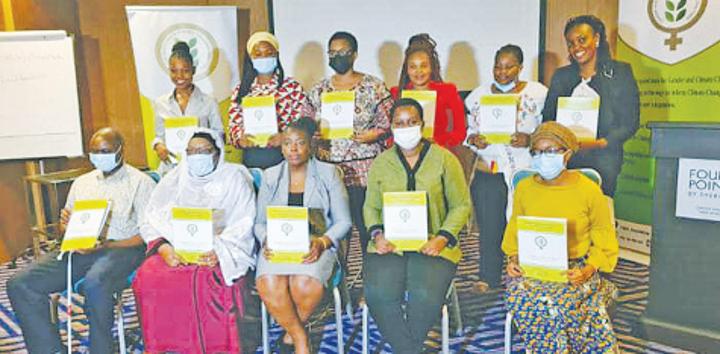Africa-Press – Tanzania. LAST Friday, a Non-Governmental Organisation-Gender and Climate Change Tanzania Coalition (GCCTC), launched a report on gender and climate change in Tanzania that called for friendly climate change engagement strategies for children, and youth to also take part in environmental conservation in their grassroots areas.
The report that was read by the Executive Director of Foundation for Environmental Management and Campaign against Poverty, Mathias Lyamunda, who is also GCCTC a member noted that all gender groups (whether as individuals, in organizations and governments) should be brought onboard in a joint campaign for-Environmental conservation, further defining it as the protection, preservation, management, or restoration of natural environments and the ecological communities that inhabit them.
However, one might ask, what is the importance of conserving environment? The immediate reply may include it offering fresh air and clean water; maintaining the outside temperature; preserving nature, biodiversity, and ecosystem; giving growth to more plant species for better medicine and building a healthy planet and a healthy life that every citizen of planet earth want.
But, this will not be fulfilled if any group of people are not involved in conserving it, as Lyamunda further said: “Their (children and youth) contributions are extremely valuable, but we should ask ourselves are there related mechanisms used to involve them in this exercise? For example, through Primary, Secondary and higher learning institutions, there should be an education curriculum as a special program to educate them on climate change so that they grow up grooming and owning it.”
In his school of thought, he asked for the integration of issues of gender and climate change into the country’s strategic vision so that all stakeholders led by the government, identify priorities to address and harmonize with sectors such as agriculture that provides the country with food. He also suggested prioritizing gender leadership so that more women are engaged on climate change right from the rural to the national level, saying: “GCCTC is calling for the simplification of any document on gender and climate change to increase public awareness and improve modes of conveying messages to all gender groups, including to persons with all forms of disabilities.
“The GCCTC further calls for the harmonization of various policies, laws and strategies on sectorial issues and climate change so that we have one alignment approach on climate change, including considering gender mainstreaming to the broader national level.” In his explanation, he said chapter three of the general recommendations of their GCCTC book focuses on prioritizing gender leadership on climate change right from rural to national level that should be respected and implemented.
Gracing the occasion, it was good the Deputy Director for Environment in the Vice President Office, Emelda Teikwa assured the participants that the government will work on the suggestions they advanced, because at the end of the day, any environmental abuse will be shouldered by all.
She cited a case study of the need to promote efficient technology use, and increasing renewable energy alternatives like cooking with stove and lowering electricity tariffs as best options, which conserve environment. She said currently the government through the Ministry of Energy is fighting to ensure that every village gets electricity, something that will minimize dependence on charcoal use and hence, conserve environment.
On her part, Human Dignity and Environmental Care Foundation Director, Sarah Pima said that the voice of youth, especially girls in the villages should be considered in any platform discussing environmental conservation. She said: “The impact of climate change can be measured in different ways…there are those who are directly affected and those indirectly touched, but all in all both parties must be considered.
“For instance, if there is few fish in a river due to climate change, women who sell fish will be affected and they will not be able to take care of their families, especially single mothers. Even those who take loans from the banks to run the business will be in problems.” Giving history of the GCCTC, its coalition coordinator, Maria Matui said it started operations in 2019 as a loose network to advocate for a nexus between human rights and climate change with focus on women in particular and gender rights in general.
Currently, it has spread wings to seven regions of Mwanza, Tanga, Arusha, Dar es Salaam, Njombe, Morogoro and Mbeya reaching some 120 Human Rights and environmental groups in its first year phase of advocacy campaign. She said: “Building on the efforts which the coalition made in the past years is considered necessary in complementing the government’s efforts toward addressing gender and women issues.
The first national symposium in August 2019 in Morogoro region discussed the nexus on climate change and women right.
“It is where the Parliamentary Committee members, government officials, gender focal and link persons from the government, the Law Reforms Commission of Tanzania and some Civil Societies Organization (CSOs) were brought together and discussed climate change with gender in mind, because the impacts of climate change affect women than any other group in the society.”







